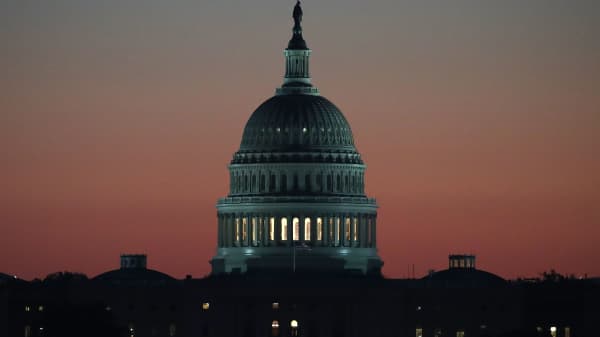With Donald Trump's nomination of Neil Gorsuch to replace Antonin Scalia on the Supreme Court, Senate Democrats are debating how far they should take their threat of using the filibuster against the nominee. Recent reports have some Democrats backing off the threat in order to preserve use of the tactic for other legislative actions later in the year or for a future Supreme Court pick.
However, even if the Democrats hold the line and demand 60 votes for approval of the new justice, they are unlikely to stop Gorsuch's eventual ascension. Instead, they would likely force Senate Republicans, and the filibuster's biggest proponent, Senate Majority Leader Mitch McConnell, to deal a potential fatal blow to the obstructionist device.
The immediate death of the filibuster rule may not seem like an obvious benefit for Democrats. They would be turning over one of their most powerful weapons as a Senate minority at a time when their ability to filibuster represents the party's last strand of power in the federal government. But the Senate Democrats should embrace this action – both for political reasons and ideological ones. The filibuster has been a deterrent to good government, and when the party finally regains power, they will be happy to see it gone.
At the moment, the Democrats will be severely limited in their ability to stop Republican legislation and appointments without a filibuster. But its value for the Democrats may be overrated. Past presidents have shown that the filibuster has limited value in stopping a president determined to act. Trump has already revealed that he is willing to use executive orders to bypass Congress and much of his proposed changes wouldn't be focused on legislative drafting.
But if a party is really intent on rewriting laws, the filibuster presents an obstacle, as the Democrats found out in the early years of both the Obama and Clinton administrations. Despite having control of both houses of Congress, the party continually met problems getting laws through the Senate. During Obama's term, Democrats had the magic 60 votes in the Senate, but they struggled to pass legislation, especially Obama's signature Affordable Care Act. For the party that prides itself on taking action more than conserving past law, the filibuster has proven a uniquely difficult barrier.



